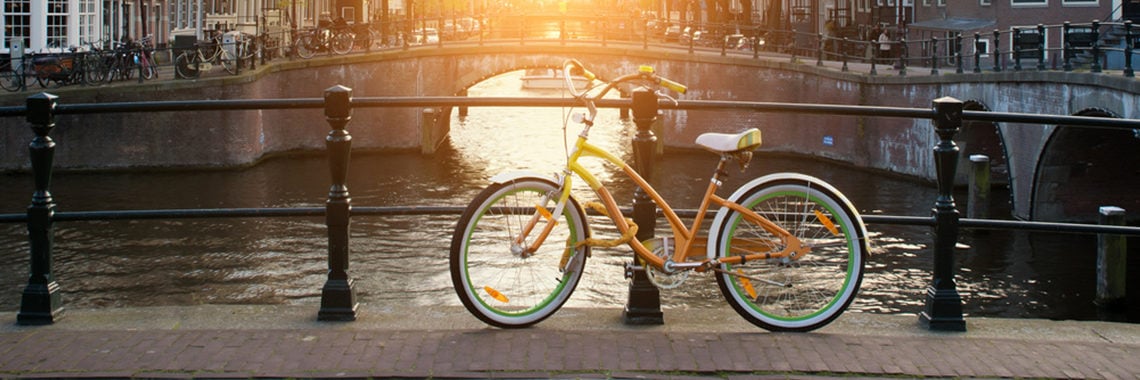
The Netherlands is an open economy, carried along by international economic trends. In addition, global warming, the continuing uncertainties surrounding the war in Ukraine, volatile energy markets and immigration issues are also presenting new challenges. However, these have a relatively limited direct real impact on Dutch exports. The effects of Brexit are becoming increasingly evident, particularly in terms of its impact on Dutch exports. It is notable that the Netherlands continues to be an attractive location for British and other international companies, either to establish new operations or to expand existing activities within the European Union.
Economy
At the same time, the open and international nature of the Dutch economy means that it is not immune to the aforementioned international developments. Persisting supply-chain problems, labour market tightness, ongoing inflationary pressures and associated monetary measures are presenting an obstacle to business profitability and finance, as well as investment. At the same time, these risks are also opening up economic opportunities for innovation, in the field of sustainability for example, and for new business activities. Companies and knowledge institutions are coming together to work in these areas. The Dutch economy generally seems to be withstanding the above challenges relatively well.
Many companies, especially those operating internationally, exhibit a strong financial position, typically characterised by healthy profitability and solvency. This emphasises the Netherlands’ attractive investment climate.
Fiscal climate
For several years, the Netherlands has adjusted certain aspects of its fiscal regime in line with the worldwide attempt to combat tax avoidance and undesirable use of national legislation, as well as mismatches in the fiscal treatment of income and cost deductions between countries’ fiscal regimes. The Dutch government has decided as far as possible to link the fiscal benefits to the real economic activities from which the Dutch economy benefits. For instance, in recent years, the Netherlands has worked diligently to shed its reputation as a fiscal ‘transfer country’, by restructuring its corporation and dividend tax regime to discourage tax avoidance involving the Netherlands. This effort involves not only fiscal adjustments but also the introduction of measures aimed to increase government control and transparency regarding the activities of these companies. Through this gradual approach, the Dutch government aims to shift focus towards the fiscal stimulation of real activity and maintaining its status as an attractive host country.
Country and Government
The Netherlands has a total population of 18 million inhabitants (January 2025) and is governed by a monarchy. The ministers are the people’s representatives with respect to the actions of the government. The head of state in the Netherlands does not hold political responsibility and thus cannot be held politically accountable by the parliament. Elections are held every four years, and the government typically consists of a coalition of parties, ensuring a certain degree of continuity as regards policy and business climate, from both a national and international perspective. Furthermore, the Netherlands also has 12 provinces, each with its own local authorities. The Netherlands, together with the countries of Aruba, Curacao and Sint-Maarten, form part of the Kingdom of the Netherlands. The islands of Bonaire, Sint-Eustatius and Saba all have a separate status and belong to the Caribbean part of the Kingdom.
Location
Most of the Netherlands’ major industries are situated in the country’s western regions. Notably, the Port of Rotterdam stands out as one of the biggest ports globally. The railway line known as the ‘Betuweroute’ ensures fast and efficient transport from the port to the European hinterland, including Germany, Central and Eastern Europe and even China. Utrecht serves as a pivotal transportation hub, and Schiphol Airport is not only the primary airport in the Netherlands but also ranks among the world’s biggest hub-airports. Eindhoven, in the southern part of the Netherlands, is known as a ‘Brainport’ for high-tech companies. The Netherlands plays a crucial role in the functioning of key transport arteries. Amsterdam is considered as the country’s main financial centre, while The Hague is known as the legal capital of the world. Around 160 international organisations now have offices in The Hague.
Export
The country’s prime geographical location and healthy financial policy have helped to ensure that the Netherlands has grown into an important import and export nation. The country’s most important industrial activities include oil refineries, chemicals, foodstuff processing and the development of electronic products. Germany, Belgium, Luxembourg, China, Great Britain, France and the United States are the country’s main import partners. All the above-mentioned countries, including Italy, are also the country’s most influential export partners. However, it is important to note that trade with Russia is currently restricted by a number of international sanctions packages. Consequently, the import and export partnership with Russia has more or less halved since the war in Ukraine. At the same time, trade with the Eurasian Economic Union has significantly increased.
Below you find the full publication of Doing Business in the Netherlands. For more detailed information, please do not hesitate to contact your personal Crowe Foederer accountant.